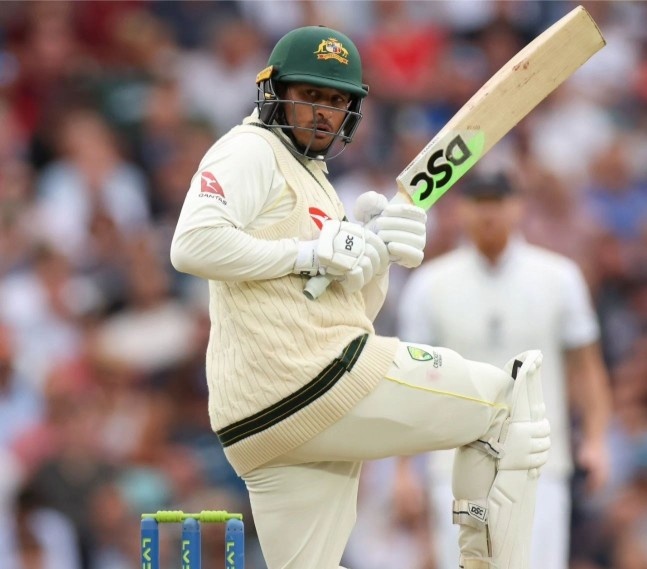Australian cricketer Usman Khawaja has found himself at the center of a controversy during the ongoing Wellington Test against New Zealand. The left-handed opener was forced to remove a banned dove sticker from his bat during the second inning, reigniting a debate that has been simmering for months.
The Dove Logo
The dove sticker, which depicts a dove clutching an olive branch, is a symbol meant to raise awareness for the humanitarian crisis in Gaza. Khawaja had previously requested permission to display the logo on his bat during the Boxing Day Test against Pakistan in December 2023. However, the International Cricket Council (ICC) rejected his application, deeming it a “political protest” during international fixtures.
The ICC’s Stance
The ICC’s decision to ban the dove sticker has been met with mixed reactions. While some argue that it is a legitimate expression of solidarity with a humanitarian cause, others believe that cricket should remain apolitical during matches. Khawaja’s case highlights the fine line between personal expression and adherence to the rules set by cricket’s governing body.
Usman Khawaja Previous Incidents
This is not the first time Usman Khawaja has been embroiled in controversy related to symbols on his gear. During the same series against Pakistan, he was barred from wearing shoes displaying the messages “all lives are equal” and “freedom is a human right.” Additionally, he faced reprimand for wearing a black armband during a match, which he explained was for “personal bereavement.”
Support and criticism
Usman Khawaja has received support from his captain, Pat Cummins, and Cricket Australia chief Nick Hockley. Cummins praised Khawaja for standing up for what he believes in and doing so respectfully. He emphasized that “all lives are equal,” and the dove sticker should not be considered offensive. However, the ICC remains firm in its stance against allowing any form of political expression during international games.
Double Standards?
Usman Khawaja has pointed out the double standards within cricket. He shared images of cricketers donning religious stickers on their bats, including teammate Marnus Labuschagne’s bat, which features biblical verses. The inconsistency in allowing certain symbols while banning others raises questions about the ICC’s approach to personal expression.
The T20 World Cup Implications
As the T20 World Cup approaches, Khawaja’s situation could impact his chances of selection. While his commitment to his beliefs is commendable, the rules are clear. Whether the ICC will reconsider its stance or maintain its position remains to be seen. For now, Khawaja continues to play, but without the dove logo on his bat.
In a sport where tradition and rules intersect, players like Khawaja remind us that cricket is not just about runs and wickets—it’s also about the values we uphold and the causes we champion.
Usman Khawaja’s stand has sparked conversations about the role of cricket in addressing global issues. As the game evolves, so do the discussions around personal expression and the boundaries set by cricket’s governing bodies. Whether the dove logo will find its place back on Khawaja’s bat remains uncertain, but his actions have certainly left an indelible mark on the game.




